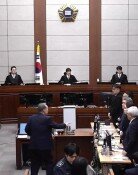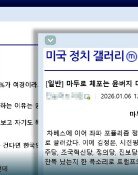Korea Has Reputation for Plagiarism
Korea Has Reputation for Plagiarism
Posted February. 20, 2007 06:49,
Kim, a 22-year-old student, was admitted to Virginia State University in 2004 after coming to Virginia with his family when he was 16 years old. Last spring, he attended a chemistry class, planning to enter medical school after graduation. For an experimental report, he copied several sentences from a friend, thinking it was not a big deal.
His professor, however, pointed out the copied part and sent him to the school disciplinary committee. Indefinitely suspended from school, Kim could not even transfer to another university because his plagiarism was recorded in his student report. He wrote a letter for clemency, but the school has not moved an inch. Currently, hes working at a Korean store, earning a little more than $1,000 a month. He doesnt even talk to his Korean friends. Hes totally mired in frustration, said one of his friends.
This is not an isolated case. A number of Koreans have gotten into trouble after plagiarizing while studying abroad. Some universities in advanced countries have a bad impression of Korean students, warning that reports written by Asian students should be double-checked.
Koreans working abroad in the globalized world are getting bad reputation for plagiarism. Our recognition for plagiarism, however, is far from the global standards. This is not a problem of one individual. It is a social problem stemming from lack of anti-plagiarism education. Perpetrators are the victims nurtured in the Republic of Plagiarism.
Every year, three or four students are not able to graduate with their colleagues. Thats because they copied others work. No mistakes are allowed, notified the presenter at last Julys welcoming party for Harvard Kennedy School freshmen. Jason Lim, who attended the party said more than half of the party was about plagiarism warnings. Harvard University students should sign an academic integrity standard, pledging that he or she will refrain from plagiarism.
This is far from the case in Korea. The word plagiarism comes from the Latin word plagiarus, which means kidnapping. Harvards student guidebook describes plagiarism as an act of kidnapping anothers brainchild. The university does not count on student morality. It prevents copying through rigorous education and stringent regulation.
Daniel Oper, a 27-year-old trade major at the University of Paris I graduate school, heard from his professor to be aware of plagiarism when he started to write his thesis. Professors review theses as well as reports with computer programs. In France, students cannot apply for any official test, including a drivers license, for five years if he or she plagiarizes a diploma thesis or cheats on the graduation test.
In Japan, there are a number of reporting channels for thesis plagiarism by universities or research institutions. In October 2000, one agricultural science professor at Kyoto University resigned from his post after being caught copying another scholars thesis. He had to send an apology note for his book to 300 libraries and publishing companies.
Koreans studying abroad are now seized with fear because of the war on plagiarism. Some students are telling each other not to do it.
Every semester, seniors gather newly admitted Korean freshmen to explain the danger of plagiarism. We tell them copying get you expelled right away. There is no excuse, said Lee Hyung-min, a 28 year-old who is working on his promotion doctorate degree at the University of Minnesota.
Now Korea should do what it can to rid itself of the notorious nickname the Republic of Plagiarism. No one can be a global leader if he or she copies even a single sentence. There is a clear path to eradicating plagiarism through reorganizing regulations and implementing practical education.



![[속보]윤석열 사형 구형…내란특검 “전두환보다 엄정히 단죄해야”](https://dimg.donga.com/c/138/175/90/1/wps/NEWS/IMAGE/2026/01/13/133151283.1.jpg)



